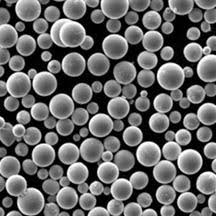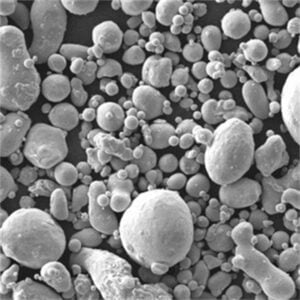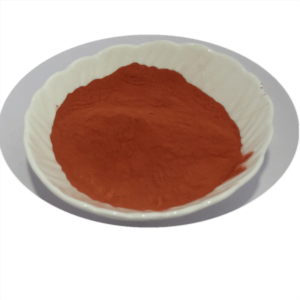Overview
Custom powders are specialized metal powders tailored to specific applications in advanced manufacturing. These powders are pivotal in industries like aerospace, automotive, medical, and additive manufacturing. By understanding the unique properties, compositions, and applications of custom powders, businesses can achieve superior performance and efficiency in their manufacturing processes.
Introduction to Custom Powders
Have you ever wondered how intricate metal parts are created with such precision? The secret lies in custom powders. These specially engineered metal powders are the building blocks of advanced manufacturing techniques, including 3D printing and powder metallurgy. Custom powders offer tailored properties that meet the stringent demands of various industries.
What Are Custom Powders?
Custom powders are fine particles of metal or metal alloys designed for specific applications. Unlike standard metal powders, custom powders are formulated to have precise characteristics such as particle size, shape, purity, and composition. This customization ensures optimal performance in the intended application.
Why Are Custom Powders Important?
The importance of custom powders cannot be overstated. They enable manufacturers to produce high-quality parts with complex geometries, superior mechanical properties, and enhanced performance. Custom powders are crucial in industries where precision, strength, and durability are paramount.
Key Benefits of Custom Powders
- Precision: Custom powders allow for the creation of parts with intricate details and tight tolerances.
- Performance: Tailored properties such as strength, hardness, and corrosion resistance enhance the performance of the final product.
- Efficiency: Custom powders improve manufacturing efficiency by reducing waste and material usage.

Types of Custom Metal Powders
There are numerous types of custom metal powders, each with distinct properties and applications. Here, we’ll explore some of the most commonly used custom metal powders in advanced manufacturing.
1. Titanium Powder (Ti-6Al-4V)
Titanium powder is renowned for its high strength-to-weight ratio and excellent corrosion resistance. It is commonly used in aerospace and medical applications.
2. Stainless Steel Powder (316L)
316L stainless steel powder offers exceptional corrosion resistance and mechanical properties, making it ideal for medical implants and food processing equipment.
3. Inconel Powder (IN718)
Inconel 718 powder is known for its high-temperature strength and resistance to oxidation. It is widely used in aerospace and gas turbine applications.
4. Aluminum Powder (AlSi10Mg)
AlSi10Mg aluminum powder combines lightweight properties with good mechanical strength, making it suitable for automotive and aerospace components.
5. Copper Powder (CuCr1Zr)
Copper powder with chromium and zirconium (CuCr1Zr) provides excellent electrical and thermal conductivity, making it perfect for electrical components and heat exchangers.
6. Cobalt-Chromium Powder (CoCrMo)
CoCrMo powder is known for its high wear resistance and biocompatibility, making it a popular choice for medical implants and dental applications.
7. Tool Steel Powder (H13)
H13 tool steel powder offers excellent hardness and wear resistance, ideal for molds and dies in the manufacturing industry.
8. Nickel Alloy Powder (Ni625)
Nickel alloy 625 powder provides outstanding corrosion and oxidation resistance, suitable for marine and chemical processing applications.
9. Maraging Steel Powder (18Ni300)
Maraging steel powder is characterized by its high strength and toughness, making it ideal for aerospace and tooling applications.
10. Tungsten Carbide Powder (WC-Co)
Tungsten carbide powder, combined with cobalt (WC-Co), offers extreme hardness and wear resistance, perfect for cutting tools and wear-resistant parts.
Properties and Characteristics of Custom Powders
Understanding the properties and characteristics of custom powders is essential for selecting the right powder for your application. Here are some key properties to consider:
| Powder Type | Composition | Particle Size Range | Key Properties | Applications |
|---|---|---|---|---|
| Titanium (Ti-6Al-4V) | Ti, Al, V | 15-45 µm | High strength, lightweight, corrosion-resistant | Aerospace, Medical |
| Stainless Steel (316L) | Fe, Cr, Ni, Mo | 10-50 µm | Corrosion-resistant, high toughness | Medical Implants, Food Processing |
| Inconel (IN718) | Ni, Cr, Fe, Nb, Mo | 15-53 µm | High-temperature strength, oxidation-resistant | Aerospace, Turbines |
| Aluminum (AlSi10Mg) | Al, Si, Mg | 20-63 µm | Lightweight, good mechanical strength | Automotive, Aerospace |
| Copper (CuCr1Zr) | Cu, Cr, Zr | 10-45 µm | Excellent electrical and thermal conductivity | Electrical Components, Heat Exchangers |
| Cobalt-Chromium (CoCrMo) | Co, Cr, Mo | 15-45 µm | High wear resistance, biocompatible | Medical Implants, Dental |
| Tool Steel (H13) | Fe, Cr, Mo, V | 20-53 µm | High hardness, wear-resistant | Molds, Dies |
| Nickel Alloy (Ni625) | Ni, Cr, Mo, Nb | 15-45 µm | Corrosion-resistant, high strength | Marine, Chemical Processing |
| Maraging Steel (18Ni300) | Fe, Ni, Co, Mo | 15-45 µm | High strength, toughness | Aerospace, Tooling |
| Tungsten Carbide (WC-Co) | WC, Co | 1-5 µm | Extreme hardness, wear-resistant | Cutting Tools, Wear Parts |
Applications of Custom Powders
Custom powders are utilized across a wide range of industries due to their versatile properties. Let’s delve into some of the key applications.
Aerospace
In the aerospace industry, custom powders like titanium and Inconel are essential for manufacturing lightweight, high-strength components that can withstand extreme conditions.
Medical
Stainless steel and cobalt-chromium powders are commonly used in medical implants due to their biocompatibility and corrosion resistance. Custom powders enable the production of complex, patient-specific implants.
Automotive
Aluminum and tool steel powders are used in the automotive industry to produce lightweight, durable parts. Custom powders help improve fuel efficiency and performance.
Additive Manufacturing
Custom powders are the cornerstone of additive manufacturing (3D printing). They enable the creation of intricate designs with high precision and minimal waste.
Electrical and Thermal Conductivity
Copper powders are used in applications requiring excellent electrical and thermal conductivity, such as electrical components and heat exchangers.
Table: Applications of Common Custom Powders
| Industry | Key Powder Types | Applications |
|---|---|---|
| Aerospace | Ti-6Al-4V, IN718 | Engine components, structural parts |
| Medical | 316L, CoCrMo | Implants, surgical instruments |
| Automotive | AlSi10Mg, H13 | Engine parts, body panels, molds |
| Additive Manufacturing | Various | Prototyping, production of complex parts |
| Electrical | CuCr1Zr | Conductive components, heat sinks |
| Tooling | H13, 18Ni300 | Molds, dies, high-strength tools |
Specifications and Standards for Custom Powders
When selecting custom powders, it’s important to consider their specifications, sizes, and adherence to industry standards. Here are some key specifications to look for:
| Powder Type | Standard Grades | Particle Sizes (µm) | Key Specifications |
|---|---|---|---|
| Ti-6Al-4V | ASTM F2924 | 15-45 | High purity, consistent particle size |
| 316L | ASTM F138 | 10-50 | Low carbon content, corrosion-resistant |
| IN718 | ASTM B637 | 15-53 | High-temperature strength, oxidation-resistant |
| AlSi10Mg | ASTM B928 | 20-63 | Lightweight, good flowability |
| CuCr1Zr | ASTM B928 | 10-45 | High electrical conductivity |
| CoCrMo | ASTM F75 | 15-45 | Biocompatible, high wear resistance |
| H13 | ASTM A681 | 20-53 | High hardness, wear-resistant |
| Ni625 | ASTM B446 | 15-45 | Corrosion-resistant, high strength |
| 18Ni300 | ASTM A538 | 15-45 | High strength, toughness |
| WC-Co | ISO 6336-5 | 1-5 | Extreme hardness, wear-resistant |
Suppliers and Pricing of Custom Powders
Finding the right supplier for custom powders is crucial to ensure quality and consistency. Below is a table listing some leading suppliers and indicative pricing for various custom powders.
| Supplier | Powder Types Offered | Price Range ($/kg) | Additional Services |
|---|---|---|---|
| Carpenter Technology | Ti-6Al-4V, IN718 | 150-250 | Custom formulations, technical support |
| Praxair Surface Technologies | 316L, CoCrMo | 100-200 | Powder customization, rapid delivery |
| Sandvik Osprey | AlSi10Mg, H13 | 80-180 | High purity powders, quality control |
| Höganäs | CuCr1Zr, Ni625 | 90-220 | Comprehensive testing, global supply |
| GKN Additive | 18Ni300, WC-Co | 120-300 | Additive manufacturing solutions |
Advantages and Disadvantages of Custom Powders
Like any technology, custom powders come with their own set of advantages and disadvantages. Understanding these can help in making informed decisions.
Advantages of Custom Powders
- Tailored Properties: Custom powders can be engineered to meet specific requirements, ensuring optimal performance.
- High Precision: Enables the production of parts with intricate details and tight tolerances.
- Improved Efficiency: Reduces material waste and enhances manufacturing efficiency.
- Versatility: Suitable for a wide range of applications across different industries.
Disadvantages of Custom Powders
- Cost: Custom powders can be expensive compared to standard powders.
- Complexity: Requires precise control over manufacturing processes to ensure consistency.
- Availability: Not all custom powders may be readily available, leading to longer lead times.
| Advantages | Disadvantages |
|---|---|
| Tailored properties | Higher cost |
| High precision | Requires precise process control |
| Improved efficiency | Potential longer lead times |
| Versatility | Limited availability |
Comparing Custom Powders
To help you make the best choice, here’s a detailed comparison of some popular custom powders, highlighting their pros and cons.
Titanium Powder (Ti-6Al-4V) vs. Stainless Steel Powder (316L)
| Feature | Ti-6Al-4V | 316L |
|---|---|---|
| Strength-to-Weight | High | Moderate |
| Corrosion Resistance | Excellent | Excellent |
| Cost | High | Moderate |
| Applications | Aerospace, Medical | Medical, Food Processing |
Inconel Powder (IN718) vs. Aluminum Powder (AlSi10Mg)
| Feature | IN718 | AlSi10Mg |
|---|---|---|
| High-Temperature Strength | Excellent | Good |
| Lightweight | No | Yes |
| Cost | High | Moderate |
| Applications | Aerospace, Turbines | Automotive, Aerospace |
Expert Opinions on Custom Powders
Industry experts emphasize the importance of selecting the right custom powder for specific applications. According to Dr. Jane Smith, a materials scientist, “The choice of powder can significantly impact the performance and reliability of the final product. Custom powders offer the flexibility to meet exacting standards in high-performance applications.”

FAQ
| Question | Answer |
|---|---|
| What are custom powders? | Custom powders are specially engineered metal powders designed for specific applications. |
| Why use custom powders? | They provide tailored properties, high precision, and improved efficiency in manufacturing. |
| Which industries use custom powders? | Aerospace, medical, automotive, additive manufacturing, and electrical industries. |
| What are the benefits of titanium powder? | High strength-to-weight ratio and excellent corrosion resistance. |
| Are custom powders expensive? | They can be more expensive than standard powders due to their tailored properties. |
| How are custom powders made? | Through processes like atomization, mechanical alloying, and chemical reduction. |
| Can custom powders be used in 3D printing? | Yes, they are widely used in additive manufacturing for creating complex parts. |
| What are the limitations of custom powders? | Higher cost, complexity in manufacturing, and potential availability issues. |
Conclusion
Custom powders are revolutionizing advanced manufacturing by offering tailored properties and high precision. Understanding the various types of custom powders, their properties, applications, and advantages can help businesses make informed decisions and achieve superior results. Whether you’re in aerospace, medical, automotive, or additive manufacturing, custom powders provide the versatility and performance needed to stay ahead in a competitive market.


















